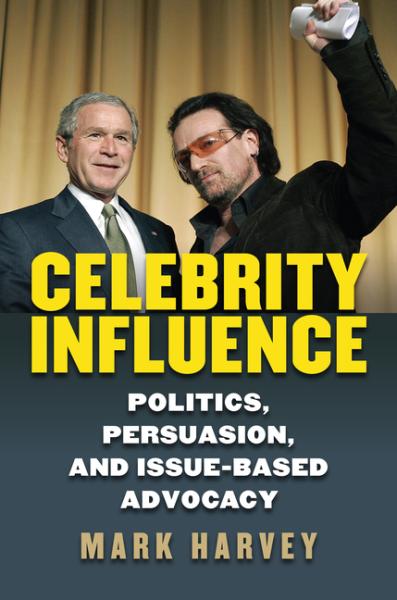Description
Focusing on two specific kinds of power--the ability to "spotlight" issues in the media and to persuade audiences--Harvey searches out the sources of celebrity influence and compares them directly to the sources of politicians' influence. In a number of case studies--such as Jolie and Ben Affleck drawing media attention to the civil war in the Democratic Republic of Congo; Bob Marley uniting warring factions in Jamaica; John Lennon networking with the new left to oppose Richard Nixon's re-election; Elvis Presley working with Nixon to counter anti-war activism--he details the role of celebrities working with advocacy groups and lobbying politicians to affect public opinion and influence policy. A series of psychological experiments demonstrate that celebrities can persuade people to accept their policy positions, even on national security issues.
Harvey's analysis of news sources reveals that when celebrities speak about issues of public importance, they get disproportionately more coverage than politicians. Further, his reading of surveys tells us that people find politicians no more or less credible than celebrities--except politicians from the opposing party, who are judged less credible. At a time when the distinctions between politicians and celebrities are increasingly blurred, the insights into celebrity influence presented in this volume are as relevant as they are compelling.
Product Details
- University Press of Kansa Brand
- Jan 12, 2018 Pub Date:
- 9780700624980 ISBN-13:
- 0700624988 ISBN-10:
- 272.0 pages Hardcover
- English Language
- 9.25 in * 1 in * 6.25 in Dimensions:
- 1 lb Weight:




